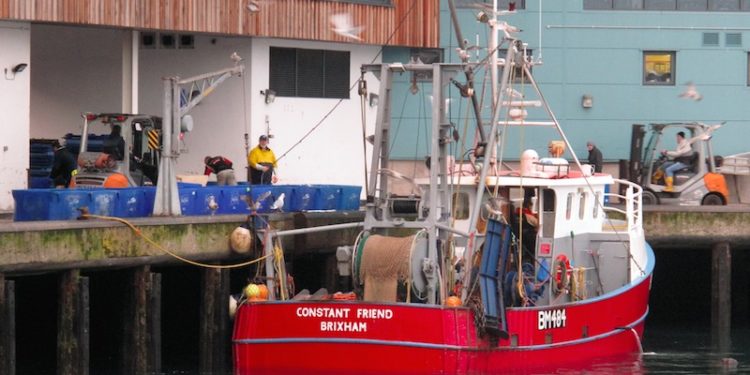UK fisheries minister George Eustice has written to the NFFO to allay concerns over the British government’s plans for the UK’s departure from the European Union.
Writing before the announcement of the June general election, he stated that the Great Repeal Bill will transpose large swathes of European law into British law, which will be revised by Parliament – but he made it plain that there will be changes from day one and that arrangements for TACs and access will reflect the UK’s status as a coastal state.
There have been plenty of concerns over the industry remaining bound by CFP rules due to the anticipated bottlenecks of revising legislation, and according to the NFFO, the landing obligation that comes into full force on the 1st of January 2019 is at the top of the list of concerns.
In a letter that the NFFO describes as the ‘most detailed insight yet into the Government’s thinking about its aspirations for fishing post Brexit,’ it also states that these are closely aligned with the Federation’s own ambitions.
‘Fisheries will be a key area in the EU Exit negotiations. We have a ‘once in a generation’ chance to regenerate UK fishing grounds and improve the conditions under which they are fished,’ George Eustice assured the NFFO.
‘As I have previously mentioned, we are currently analysing all EU fisheries legislation. No decision has yet been made on the extent to which the EU legislation governing the Common Fisheries Policy will be incorporated into domestic law. However, as we leave, we will look to dis-apply the key elements of the CFP that are most unpopular and unworkable for the UK as a coastal state, including those on mutual access and EU-level quota setting. We will take the opportunity to develop a fisheries regime that is better suited to our seas and industries.’
He commented that the matter of the London Fisheries Convention is being considered.
‘I note your concern about the implementation of the EU landing obligation. I can assure you that we will continue to work with the industry to ensure that the transitions to full implementation in 2019 is as smooth as possible and that we remain committed to ending discards. We are working with other member States and industry to identify the best solutions to deal with choke species.’









